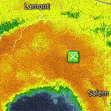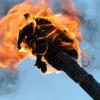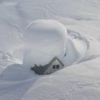All Activity
- Past hour
-
A month from now I think we’ll be cooking in a big way. This is another heavy backloaded season imo. Hard to beat the stability and SAL issues that have been persistent across the tropical Atlantic this decade.
-
To add to my post from yesterday: “That is a big part of the reason why I question 2013-14 as a “good analog”. This year has a much better chance of seeing a La Niña in the fall/early winter than 13-14 ever did, 13-14 did not have a -IOD event as we do now, it did not have a strong -PDO; in fact it was a Victoria mode PDO which is a pseudo +PDO setup and was only very weakly negative, it was not -PMM and it was a strongly positive QBO all winter, see my monthly QBO numbers above AND it did not have record low arctic sea ice. The only resemblance to this year that I see is the Atlantic tropical season (**so far**) and the big cold pool south of Greenland and up Davis Straight, other than that, big meh as an analog IMO…..” Saw on twitter this morning a couple of folks using 13-14 as their analog, which is fine, everyone is certainly entitled to their opinion and I understand their arguments. However, one person in particular (a met) was completely unaware that 13-14 was +QBO and was incorrectly arguing that it was -QBO. If you are going to make an argument for a certain analog at least do your homework and get all your ducks in a row and facts straight. Just more of a reason to take wxtwitter with a huge grain of salt….even some mets there…..
-
A fave memory was the day after and being sent to see if a dam we had on the Occoquan was still stable. That thing didn’t budge one inch.
-
LMFAOOOOOO L Tropical Weather Outlook NWS National Hurricane Center Miami FL 800 AM EDT Mon Aug 25 2025 For the North Atlantic...Caribbean Sea and the Gulf of America: Active Systems: The National Hurricane Center is issuing advisories on Tropical Storm Fernand, located over the central subtropical Atlantic. 1. Eastern Caribbean Sea (AL99): A tropical wave over the eastern Caribbean Sea is producing disorganized showers and thunderstorms. This system has become less organized since yesterday, and further development is not anticipated as it moves quickly westward during the next few days. * Formation chance through 48 hours...low...near 0 percent. * Formation chance through 7 days...low...near 0 percent. Forecaster Blake
-
Dude. I’ve got a 23 yr old, a freshman in college and senior in HS. The last two were in diapers when I started reading weather boards. And now I’m
-
-
https://www.facebook.com/100057885799452/posts/1170806174858898/?mibextid=rS40aB7S9Ucbxw6v
-
We obviously still have a good deal of surplus rain from July into the first week in August in Greensboro. However, with about a third of an inch of rain since the 9th, and entering what appears to be a stable period of dry weather and low dewpoints, we may get some minor drought conditions. No big deal, but it's just crazy how we get stuck in these persistent patterns this year.
-
That's pretty wild the GFS has nothing in its run...obviously some waves here and there but the overall background is not not conducive for anything outside of some brief development. Have to see if things begin to change more quickly as we near peak.
-
Homegrown storms will be common soon
-
7th grader here, she turns 13 in December and I feel older every day
-
-
Weenie tap from TOL to S Wey
-
That 60-day dark green Weymouth pixel. Is that 6” event you had within the last 60 days? It all blends together but I believe so, right?
-
ACE is now at 37.14 with just a little more to be added from Fernand. This puts 2024 13th highest of the last 75 (83 percentile). The 1951-2024 avg through today is only 22. However, Invest 90L headed to the W Caribbean is now considered dead. Overall, the models including Euro Weeklies continue to look quite a bit quieter than climo through the 1st half of Sept. If that verifies, we’d quickly fall back down to at least NN ACE. From that point on, it would still remain to be seen whether or not PhiEaglesfan will be right about Erin being about the only big deal this season. I’ll be more than happy to give him kudos if he were to be right. But there’s still such a long way to go, especially in a cold ENSO season, which are often backended. In addition, recent seasons have been getting more backended, quite possibly related to GW.
-
Records: Highs: EWR: 97 (1993) NYC: 95 (1948) LGA: 96 (1948) JFK: 97 (1969) Lows: EWR: 48 (1940) NYC: 52 (1940) LGA: 53 (1940) JFK: 54 (1987) Historical: 1635: Boston, Massachusetts region hit by the "Great Colonial Hurricane". (Ref. NOAA Boston Weather Events) (Ref. AccWeather Weather History) 1814 - In the early afternoon, a strong tornado struck northwest Washington D.C. and downtown. The severe tornadic storm arrived the day after the British Troops had set fire to the Capitol, the White House, and other public buildings. The storm's rains would douse those flames. The tornado did major structural damage to the residential section of the city. The tornado's flying debris killed more British soldiers than by the guns of the American resistance. The storm blew off roofs and carried them high up into the air, knocked down chimneys and fences and damaged numerous homes. Some homes were destroyed. It lifted two pieces of cannon and deposited them several yards away. At least 30 Americans were killed or injured in the heavily damaged buildings, and an unknown number of British killed and wounded. 1885 - A severe hurricane struck South Carolina causing 1.3 million dollars damage at Charleston. (David Ludlum) 1910: Bowen, MT set the record for lowest temperature ever observed in the lower 48 states in August with a reading of 5 °F. Wisdom, MT was not very far behind with a reading of 11°. Great Falls, MT set an early season and August record snowfall of 8.3 inches on the 22nd and 23rd, while St. Mary, MT reported a foot. Cheyenne, WY reported an all-time August record low of 25°, while Scottsbluff, NE set their lowest August temperature and earliest freeze on record, with a low of 30°. Kimball, NE recorded a low of 26° while the temperature fell to 25° near Lusk, WY. (Ref. AccWeather Weather History) 1914: Boston, Massachusetts had its lowest maximum temperature for August of 57 °F. (Ref. NOAA Boston Weather Events) 1940 - New Jersey experienced its coldest August morning of record, with lows of 32 degrees at Layton and Charlotteburg. (The Weather Channel) 1958: Record chill occurred across parts of the upper Midwest. Cities recording their coldest August temperature included: Austin, MN: 34°, Decorah, IA: 35°, and Genoa, WI: 41°. (Ref. Additional Temperatures Listed On This Link) 1972: Philadelphia, PA measured their 25th consecutive day without measurable rainfall. (Ref. AccWeather Weather History) 1974: Ocala, Fla.--Lightning struck a lakeside dock just west of Ocala killing a 17-year-old boy and injuring five other youths. Tampa, Fla.--A 32-year-old Largo, Fla. woman was killed and two children were injured when lightning struck into a crowd watching an air show at McDill Air Force Base. The two children injured were the woman's 3-year-old son and an 11-year-old Clearwater girl. (Ref. Lightning-The Underrated Killer.pdf) 1987 - Morning thunderstorms produced heavy rain in eastern Nebraska and southwestern Iowa. Stanton IA reported 10.50 inches of rain. Water was reported up to the handle of automobiles west of Greenwood NE. Rainfall totals for a two day period ranged from 7 to 14 inches across southwestern Iowa. Crop damage was in the millions for both states. Subsequent flooding of streams in Iowa the last week of August caused millions of dollars damage to crops, as some streams crested ten feet above flood stage. (Storm Data) 1988 - Seven cities in California reported record high temperatures for the date, including Sacramento with an afternoon reading of 104 degrees. Thunderstorms produced locally heavy rains in Arizona. Chino Valley was drenched with 2.50 inches of rain in just thirty minutes washing out a couple of streets in town. (The National Weather Summary) 1989 - Morning thunderstorms drenched Spencer, IN, with 4.10 inches of rain in three hours causing extensive street flooding. Evening thunderstorms in eastern Kansas produced up to six inches of rain around Emporia, and four inches of rain in just forty-five minutes near Parsons, and also produced wind gusts to 70 mph at Lake Melvern. (The National Weather Summary) (Storm Data) 1992: After unleashing sustained winds of around 165 mph around Homestead/Florida City, FL, Hurricane Andrew headed for the Louisiana coast. Hurricane Warnings were posted from Pascagoula, MS to the Bolivar Peninsula on the northeast Texas coast. Billings, MT fell to 35°, their coldest August temperature on record. This was the 3rd consecutive day with a low temperature in the 30s at that location.(Ref. AccWeather Weather History) (Ref. Wilson Wx. History) 1993: In Augusta County, VA people took refuge from a thunderstorm under a solitary tree. Lightning struck the tree and injured four people.(Ref. Lightning - Virginia Weather History) 1998: Torrential tropical downpours from the remnants of Tropical Storm Charley caused flash flooding along Texas State Highway 349 between Iraan and Sheffield. Just south of Iraan fast moving waters swept pavement away from this highway. Unconfirmed reports of 7 inches of rain were received from citizens of Sheffield.(Ref. Wilson Wx. History) 2003: Record high temperatures occurred across parts of the Midwest. Rockford, IL set a new record high with 97° while O’Hare Airport in Chicago, IL tied their record high with 95°. (Ref. Wilson Wx. History) 2005 - Katrina becomes a hurricane just before landfall in south Florida between Hallandale Beach and North Miami Beach. Maximum sustained winds at the time of landfall were near 80 mph. There were eleven fatalities in South Florida, including four by falling trees. More than 1.3 million customers lost electrical services, and preliminary insured loss estimates ranged from $600 million to $2 billion in the state of Florida (Associated Press). 2011: Earthquake Aftershock West Henrico Co. - Glen Allen VA. area had another 4.5 aftershock this morning at 1:07 AM that woke us up as it rattled the pulls on the chest of drawers. (West Henrico Co. - Glen Allen VA. Weather Station ) 2017: Harvey's intensification phase stalled slightly overnight from August 24–25, however Harvey soon resumed strengthening and became a Category 4 hurricane late on August 25. Hours later, Harvey made landfall near Rockport, Texas, at peak intensity. The strongest winds were focused just northeast of Corpus Christi, around Rockport. The highest reading of 132 mph was registered at Port Aransas. (Satellite-before-Landfall on the 24-25 landfall near Rockport, Texas) (Harvey made landfall near Rockport, Texas)(2017 Hurricane Summary Weatherwise Harvey,Irma,Maria) 2020: Tuesday-August 25 Entering over the waters of the southeastern Gulf of Mexico during the predawn hours of Tuesday, Laura became better organized and began strengthening to become the fourth hurricane of 2020 after sunrise as NOAA hurricane hunter aircraft data determined that maximum sustained surface winds had reached 75 mph. At the time, the center of Hurricane Laura was continuing toward the west-northwest and was located approximately 145 miles to the northwest of the western tip of Cuba. Throughout the remainder of Tuesday Laura continued to strengthen slightly while traveling to the west-northwest across the waters of the central Gulf of Mexico. During the predawn hours, Hurricane Laura strengthened to a category two hurricane as it began to curve to take a track toward the northwest and then to a major category 3 hurricane as winds reached 115 mph as the hurricane's center was slightly less 300 miles to the south of the Louisiana Gulf Coast. Thus, Laura became the first major hurricane of the 2020 Atlantic hurricane season.
-
Dead. Will be for foreseeable. Embrace it.
-
We welcome September with open arms.
- 1 reply
-
- 1
-

- Today
-
Occasional Thoughts on Climate Change
TheClimateChanger replied to donsutherland1's topic in Climate Change
Q: How about ignoring the human aspect? Which one carried more total heat? A temp of 92F, and dewpoint of 75F, or a temp. of 104F, and dewpoint of 50F? To determine which condition carries more total heat, ignoring the human aspect, we need to evaluate the total energy content of the air, which depends on both temperature and moisture content. The enthalpy of the air, which measures the total heat (sensible heat from temperature plus latent heat from moisture), is the appropriate metric. Wet bulb temperature can help approximate this, but we’ll calculate enthalpy directly using the given temperatures and dewpoints.Given Conditions: Condition 1: Dry bulb temperature = 92°F, Dewpoint = 75°F Condition 2: Dry bulb temperature = 104°F, Dewpoint = 50°F Step 1: Understand the Components Dry bulb temperature reflects the sensible heat (energy associated with temperature). Dewpoint indicates the moisture content, which relates to latent heat (energy tied to water vapor). Higher dewpoint means more moisture, contributing to latent heat, while higher dry bulb temperature increases sensible heat. Enthalpy (in Btu/lb of dry air) combines both sensible and latent heat and is commonly used in psychrometrics to compare total heat content. Step 2: Approximate Enthalpy CalculationEnthalpy of moist air can be calculated using the formula: h=0.24⋅T+W⋅(1061+0.444⋅T)h = 0.24 \cdot T + W \cdot (1061 + 0.444 \cdot T)h = 0.24 \cdot T + W \cdot (1061 + 0.444 \cdot T) where: ( h ) is enthalpy (Btu/lb of dry air), ( T ) is dry bulb temperature (°F), ( W ) is the humidity ratio (lb of water vapor per lb of dry air), 0.24 is the specific heat of dry air (Btu/lb·°F), 1061 is the latent heat of vaporization of water (Btu/lb at 0°F), 0.444 is the specific heat of water vapor (Btu/lb·°F). The humidity ratio ( W ) depends on the dewpoint, which determines the vapor pressure of water in the air. We can estimate ( W ) using the saturation pressure at the dewpoint and the atmospheric pressure (assumed standard at 14.696 psia or 101.325 kPa).Step 2a: Calculate Humidity RatioThe humidity ratio is given by: W=0.62198⋅PvP−PvW = \frac{0.62198 \cdot P_v}{P - P_v}W = \frac{0.62198 \cdot P_v}{P - P_v} where: PvP_vP_v is the vapor pressure at the dewpoint (psia), ( P ) is atmospheric pressure (14.696 psia). The vapor pressure PvP_vP_v can be approximated using the Antoine equation or simplified correlations for saturation pressure at the dewpoint temperature. A common approximation for saturation pressure (in psia) over liquid water is: Pv=exp(20.386−5132Td+459.67)P_v = \exp\left(20.386 - \frac{5132}{T_d + 459.67}\right)P_v = \exp\left(20.386 - \frac{5132}{T_d + 459.67}\right) where TdT_dT_d is the dewpoint in °F, and Td+459.67T_d + 459.67T_d + 459.67 converts to °R (Rankine).Condition 1: Dewpoint = 75°F Td=75°FT_d = 75°FT_d = 75°F , so Td+459.67=534.67°RT_d + 459.67 = 534.67°RT_d + 459.67 = 534.67°R . Pv=exp(20.386−5132534.67)≈exp(20.386−9.599)≈exp(10.787)≈0.487 psiaP_v = \exp\left(20.386 - \frac{5132}{534.67}\right) \approx \exp(20.386 - 9.599) \approx \exp(10.787) \approx 0.487 \, \text{psia}P_v = \exp\left(20.386 - \frac{5132}{534.67}\right) \approx \exp(20.386 - 9.599) \approx \exp(10.787) \approx 0.487 \, \text{psia} . W=0.62198⋅0.48714.696−0.487≈0.302914.209≈0.0213 lb water/lb dry airW = \frac{0.62198 \cdot 0.487}{14.696 - 0.487} \approx \frac{0.3029}{14.209} \approx 0.0213 \, \text{lb water/lb dry air}W = \frac{0.62198 \cdot 0.487}{14.696 - 0.487} \approx \frac{0.3029}{14.209} \approx 0.0213 \, \text{lb water/lb dry air} . Condition 2: Dewpoint = 50°F Td=50°FT_d = 50°FT_d = 50°F , so Td+459.67=509.67°RT_d + 459.67 = 509.67°RT_d + 459.67 = 509.67°R . Pv=exp(20.386−5132509.67)≈exp(20.386−10.071)≈exp(10.315)≈0.300 psiaP_v = \exp\left(20.386 - \frac{5132}{509.67}\right) \approx \exp(20.386 - 10.071) \approx \exp(10.315) \approx 0.300 \, \text{psia}P_v = \exp\left(20.386 - \frac{5132}{509.67}\right) \approx \exp(20.386 - 10.071) \approx \exp(10.315) \approx 0.300 \, \text{psia} . W=0.62198⋅0.30014.696−0.300≈0.186614.396≈0.0130 lb water/lb dry airW = \frac{0.62198 \cdot 0.300}{14.696 - 0.300} \approx \frac{0.1866}{14.396} \approx 0.0130 \, \text{lb water/lb dry air}W = \frac{0.62198 \cdot 0.300}{14.696 - 0.300} \approx \frac{0.1866}{14.396} \approx 0.0130 \, \text{lb water/lb dry air} . Step 2b: Calculate Enthalpy Condition 1: 92°F, Dewpoint 75°F T=92°FT = 92°FT = 92°F , W=0.0213W = 0.0213W = 0.0213 . Sensible heat: 0.24⋅92=22.08 Btu/lb0.24 \cdot 92 = 22.08 \, \text{Btu/lb}0.24 \cdot 92 = 22.08 \, \text{Btu/lb} . Latent heat term: W⋅(1061+0.444⋅92)=0.0213⋅(1061+40.848)≈0.0213⋅1101.848≈23.47 Btu/lbW \cdot (1061 + 0.444 \cdot 92) = 0.0213 \cdot (1061 + 40.848) \approx 0.0213 \cdot 1101.848 \approx 23.47 \, \text{Btu/lb}W \cdot (1061 + 0.444 \cdot 92) = 0.0213 \cdot (1061 + 40.848) \approx 0.0213 \cdot 1101.848 \approx 23.47 \, \text{Btu/lb} . Total enthalpy: h=22.08+23.47=45.55 Btu/lbh = 22.08 + 23.47 = 45.55 \, \text{Btu/lb}h = 22.08 + 23.47 = 45.55 \, \text{Btu/lb} . Condition 2: 104°F, Dewpoint 50°F T=104°FT = 104°FT = 104°F , W=0.0130W = 0.0130W = 0.0130 . Sensible heat: 0.24⋅104=24.96 Btu/lb0.24 \cdot 104 = 24.96 \, \text{Btu/lb}0.24 \cdot 104 = 24.96 \, \text{Btu/lb} . Latent heat term: W⋅(1061+0.444⋅104)=0.0130⋅(1061+46.176)≈0.0130⋅1107.176≈14.39 Btu/lbW \cdot (1061 + 0.444 \cdot 104) = 0.0130 \cdot (1061 + 46.176) \approx 0.0130 \cdot 1107.176 \approx 14.39 \, \text{Btu/lb}W \cdot (1061 + 0.444 \cdot 104) = 0.0130 \cdot (1061 + 46.176) \approx 0.0130 \cdot 1107.176 \approx 14.39 \, \text{Btu/lb} . Total enthalpy: h=24.96+14.39=39.35 Btu/lbh = 24.96 + 14.39 = 39.35 \, \text{Btu/lb}h = 24.96 + 14.39 = 39.35 \, \text{Btu/lb} . Step 3: Compare Total Heat Condition 1: 92°F, dewpoint 75°F → Enthalpy ≈ 45.55 Btu/lb. Condition 2: 104°F, dewpoint 50°F → Enthalpy ≈ 39.35 Btu/lb. ConclusionThe air at 92°F with a dewpoint of 75°F carries more total heat (enthalpy = 45.55 Btu/lb) than the air at 104°F with a dewpoint of 50°F (enthalpy = 39.35 Btu/lb). The higher moisture content (higher dewpoint) in Condition 1 contributes significantly to its latent heat, outweighing the higher sensible heat from the higher temperature in Condition 2.Thus, 92°F with a dewpoint of 75°F has more total heat.
















